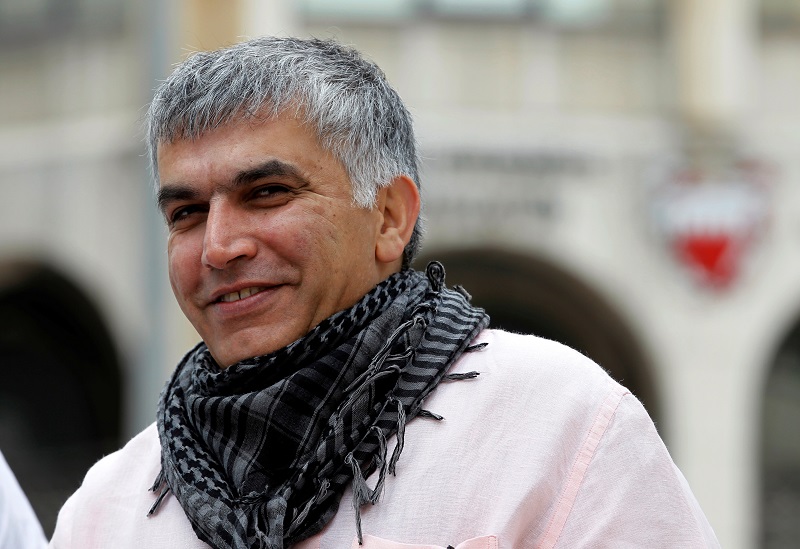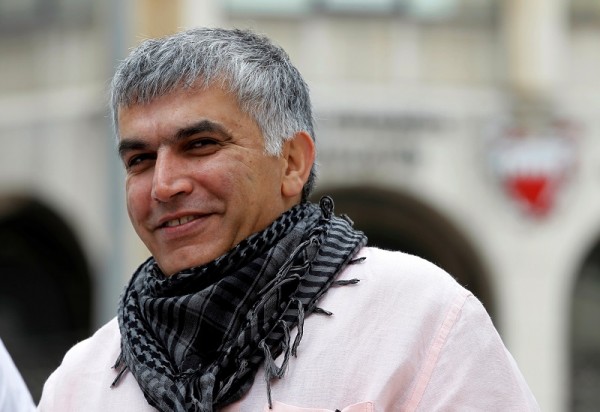The International Press Institute (IPI) today condemned the two-year prison sentence that a Bahrain court gave human rights activist Nabeel Rajab on accusations that he spread “false or malicious” information in a bid to harm the country’s image.
The court issued the sentence yesterday. Rajab was not present for the proceeding, but was instead in an interior ministry hospital due to declining health, the Bahrain Institute for Rights and Democracy (BIRD) reported. The group has attributed his condition to “poor prison conditions”.
Rajab was charged in connection with statements he made to international media outlets in 2015 and 2016 in which he aired allegations of security forces’ involvement in torture and said that authorities hindered the work of journalists and international human rights NGOs in the country.
IPI Director of Advocacy and Communications Steven M. Ellis blasted the sentence.
“This sentence is an outrageous miscarriage of justice and shows the extent to which Bahrain’s government will go to spare itself from scrutiny or accountability for its systematic human rights abuses,” he said. “It also validates the underlying truth in Mr. Rajab’s claims. If Bahraini authorities are serious about protecting the country’s reputation, they should end their campaign of repression against human rights activists, not throw a sick man into prison for telling the truth.”
Rajab, who has been held mostly in solitary confinement since June 2016, also faces up to 15 years in prison in a separate case over tweets and retweets he allegedly made in 2015 that alleged torture in a Bahraini prison and criticised human rights abuses by the Saudi Arabia-led coalition fighting Houthi rebels in Yemen. The next hearing in that case is reportedly set for Aug. 7.
The co-founder of the Bahraini Center for Human Rights (BCHR), as well as the deputy secretary of the International Federation for Human Rights (FIDH), Rajab has served multiple prison sentences due to his activism. He was a prominent figure in the 2011 pro-democracy uprising, which was quickly quashed by the Bahraini government, and both he and the BCHR have received multiple international awards over the years for their work.
Rajab was sentenced to three years in prison in August 2012, for three cases related to his participation in peaceful gatherings. In December 2012, an appeals court reduced the sentence to two years’ imprisonment and he was released in May 2014. Five months later, Rajab was again arrested and detained for allegedly “insulting a public institution” in a tweet he wrote while in Europe. He was released after one month, but barred from leaving the country. On Jan. 2, 2015, Rajab was sentenced to six months’ imprisonment on the charges of “insulting public institutions and the army,” but he was released early after a pardon was issued by Bahrain’s king.
Authorities arrested Rajab again in April 2015 in the case over his tweets and retweets. He was released while the investigation was pending, but banned from traveling, preventing him from attending IPI’s 2016 World Congress in Qatar. Rajab was taken back into custody in June 2016 in the case that brought yesterday’s two-year prison sentence.



